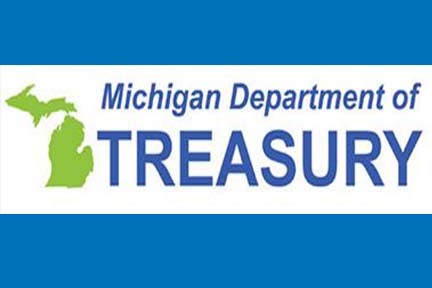
12 Michigan Schools Honored for Blue Ribbon Recognition

FOR PLANNING PURPOSES October 1, 2024 Contact: [email protected] Gov. Whitmer Sends Tributes to 12 Michigan Schools Honored for National Blue Ribbon Recognition LANSING, Mich. – Today, Governor Gretchen Whitmer sent tributes to 12 Michigan schools for being named 2024 National Blue Ribbon Schools by the U.S. Department of Education. This prestigious recognition is awarded annually to schools that demonstrate exceptional academic performance or make significant strides in closing achievement gaps among student groups.
“I’m proud of our work to build a strong public education system that gives every Michigan student a real opportunity to succeed,” said Governor Whitmer. “These twelve schools represent the best of what’s possible when we invest in our kids, teachers, and communities. Their achievements show that every child can thrive academically and have a bright future with the right support. We will continue working together to ensure all of our schools have the resources they need to empower our students, close achievement gaps, and help families continue to make it here in Michigan.”
“Education is the key to unlocking the full potential of every Michigan student,” said Lt. Governor Garlin Gilchrist II. “These National Blue Ribbon Schools demonstrate what happens when we prioritize student success and close achievements gaps across our state. By investing in our schools and ensuring that every child has access to the best educational opportunities, we’re empowering future leaders and innovators. We are grateful to the educators, students, and communities that made this achievement possible. Together, we will continue building a Michigan where every child can thrive, and every family can stand tall.”
12 Michigan Schools Honored for National Blue Ribbon Recognition:
Nominated schools also complete an extensive narrative application describing their school culture and philosophy, curriculum, assessments, instructional practices, professional development, leadership structures, and parent and community involvement.
“I am immensely proud of the students, teachers, and staff of Moraine Elementary for being recognized as one of the top performing schools in the state,” said Sen. Rosemary Bayer (D-West Bloomfield). “This is a significant accomplishment and testament to the hard work and dedication they show in the classroom every day. I want to offer my sincere congratulations — it is truly an honor to serve you and all of our District 13 schools at the Capitol, where I am working alongside colleagues to ensure our future leaders are set up for success. Keep up the good work.”
“Handley Elementary School is always leading the way for best education practices and raising the bar for student growth and success. This recognition as a National Blue-Ribbon School Program is a point of pride for our entire community,” said Sen. Kristen McDonald Rivet (D-Bay City). “I am proud to extend my congratulations and to join them in celebrating this achievement.”
“Winning this award is a remarkable achievement for the staff, administration, and students of Pembroke Academy, and it reflects the school’s dedication to academic excellence,” said Sen. Jeremy Moss (D-Southfield). “Congratulations to everyone involved — from parents to teachers, it truly takes a community effort.”
“Congratulations to the students and teachers of Dearborn STEM Academy. Your dedication to both learning and teaching has led to this well-deserved award,” said state Sen. Sylvia Santana (D-Detroit). “This achievement reflects your daily efforts, and it’s exciting to see your hard work be honored on a national scale.”
“This is an exciting day for Dearborn STEM Middle School,” said state Rep. Erin Byrnes (D-Dearborn). “Our middle school and its students are being recognized by the U.S. Department of Education for being a high-performing school. I would like to congratulate all the students, teachers and staff who have worked so hard to get this recognition. I am very proud of you all.”
“I would like to congratulate Hamilton Elementary School for being recognized as a high-performing school by the U.S. Department of Education,” said state Rep. Sharon MacDonell (D-Troy). “This is an incredible achievement that the students, teachers, staff, and families all deserve. They all worked so hard to achieve this recognition, and I am very proud of them. Congratulations, Hamilton Elementary school — you’ve earned it!”
“I’m proud of my community, our people and our successes,” said state Rep. Amos O’Neal (D-Saginaw). “I congratulate Handley Elementary School on this wonderful achievement, as a high-performing school, right here in Saginaw. What an accomplishment to be celebrated — shout out to Principal Julie Miller for all the hard work and to the teachers and staff who have dedicated their time and knowledge to our kids.”
“This recognition is a testament to the teachers, staff and parents at Moraine Elementary and their bright-minded students,” said state Rep. Matt Koleszar (D-Plymouth). “Their hard work and care for every child’s education journey is evident in their students’ achievement and love for learning. Congratulations to Moraine Elementary for this well-deserved recognition as a high-performing school!”
“Congratulations to the teachers, staff, and students at Pembroke Academy for receiving this title from the U.S. Department of Education for their incredible work to close the achievement gap for their students,” said state Rep. Natalie Price (D-Berkley). “This is proof that our kids thrive when teachers and parents work together to help students develop the critical skills they need to grow into future leaders of our communities. I want to thank the dedicated staff at Pembroke Academy for putting their students first.”
|






 Secretary Benson presented Arn Tellem, Detroit Pistons vice chairman, with a t-shirt featuring one of Michigan’s winning “I Voted” stickers designed by Grosse Pointe student Jane Hynous.
Secretary Benson presented Arn Tellem, Detroit Pistons vice chairman, with a t-shirt featuring one of Michigan’s winning “I Voted” stickers designed by Grosse Pointe student Jane Hynous. Secretary Benson announced new tools, funding, and security upgrades while speaking to media at the Detroit Pistons Performance Center.
Secretary Benson announced new tools, funding, and security upgrades while speaking to media at the Detroit Pistons Performance Center. Secretary Benson (R) met with Detroit Pistons players, coaches, and employees to talk about the ways they can help encourage Michigan citizens to vote this year.
Secretary Benson (R) met with Detroit Pistons players, coaches, and employees to talk about the ways they can help encourage Michigan citizens to vote this year. Secretary Benson spoke to the Detroit Pistons players, coaching staff, and employees encouraging them to serve as trusted community messengers about voting and participation in the 2024 General Election.
Secretary Benson spoke to the Detroit Pistons players, coaching staff, and employees encouraging them to serve as trusted community messengers about voting and participation in the 2024 General Election.



